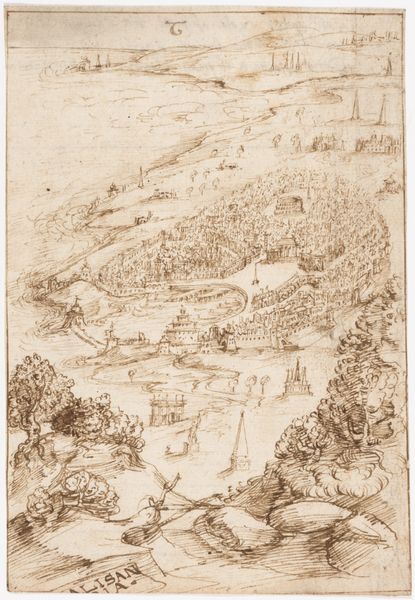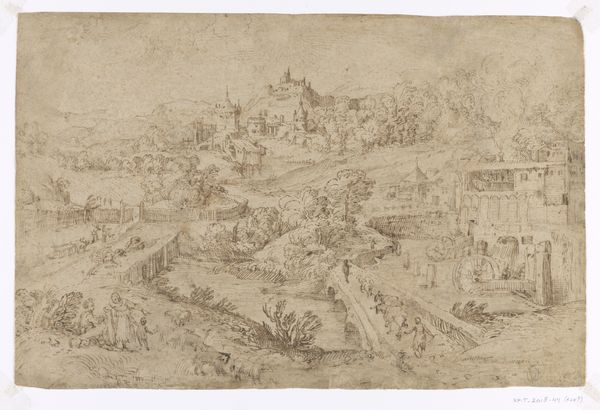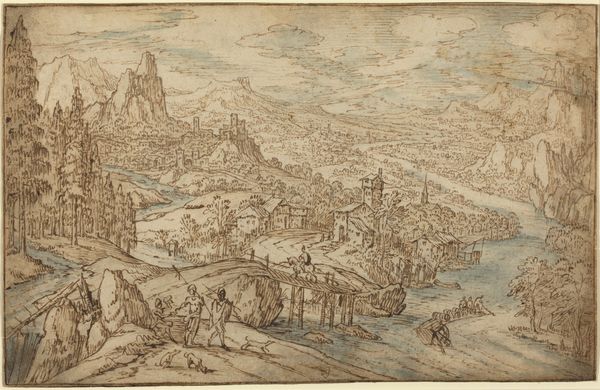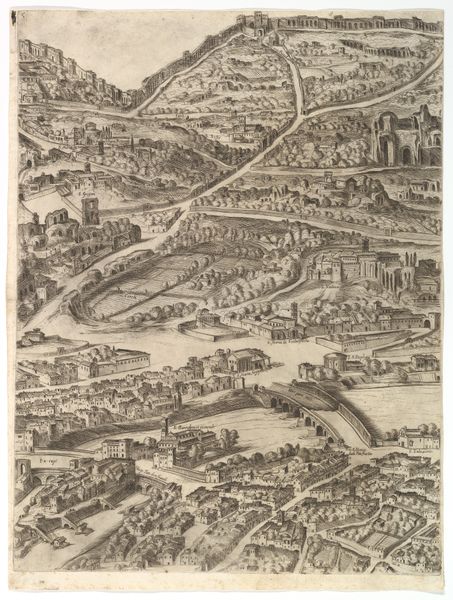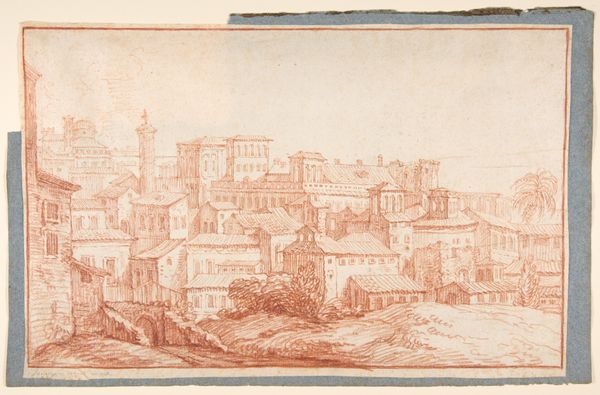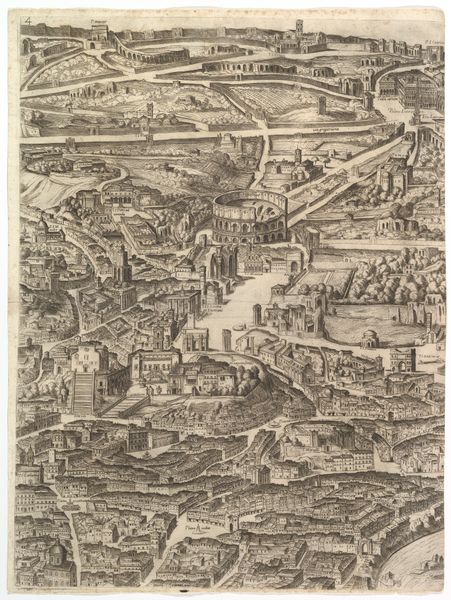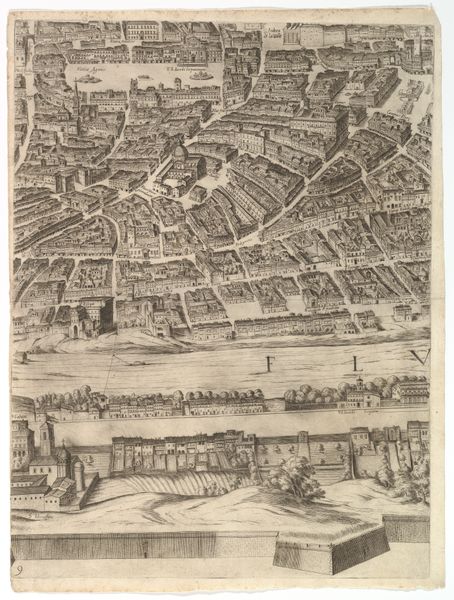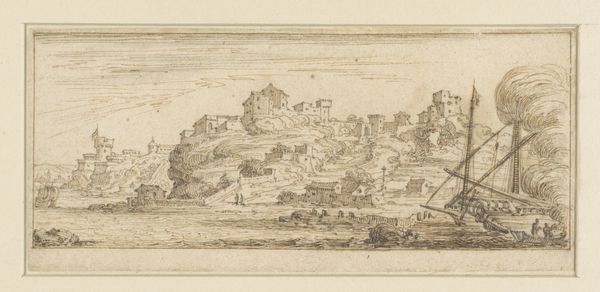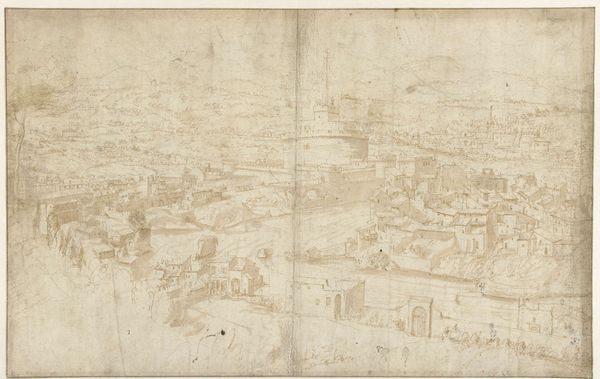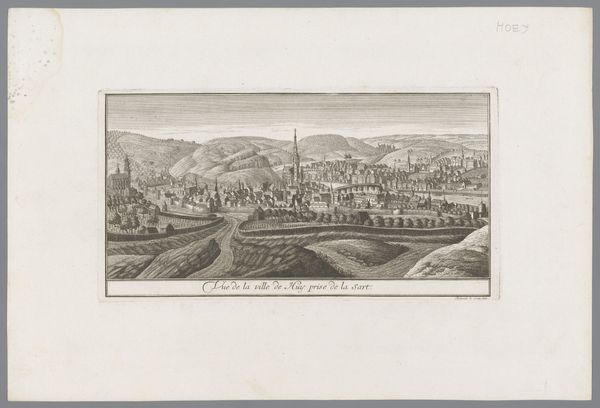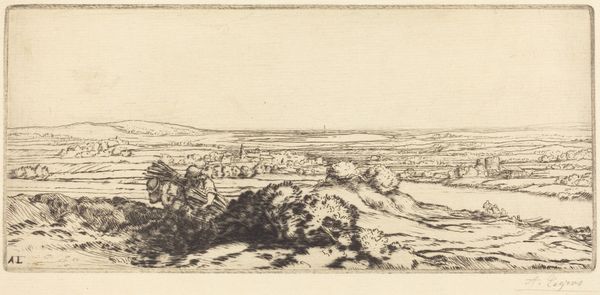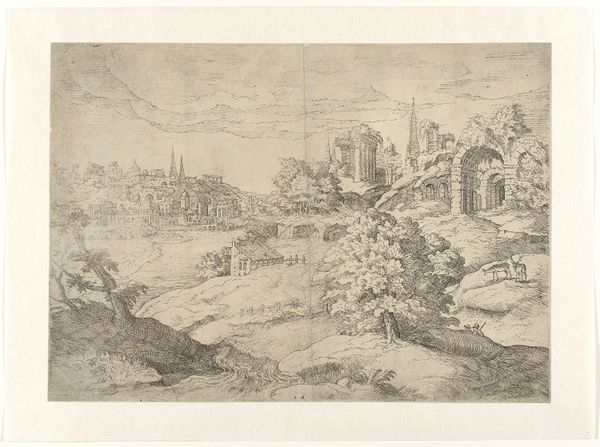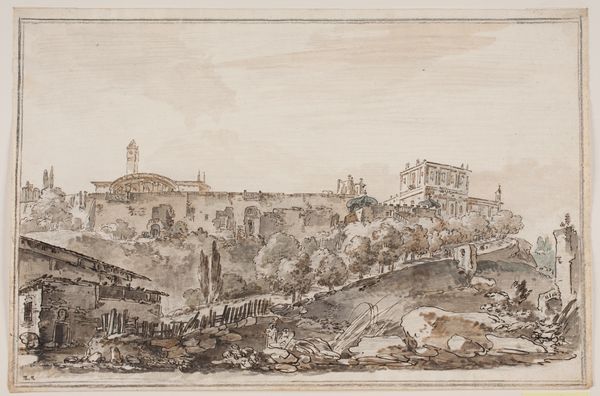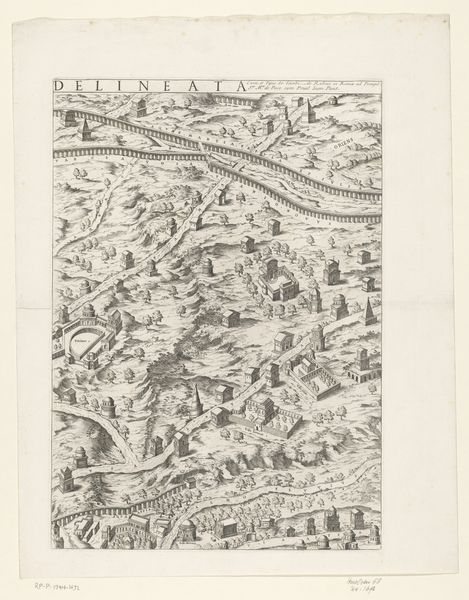
Recto: The Houses of the Barbarians (Vitruvius, Book 2, Chapter 1, nos. 3, 4); Verso: The Aeropagus in Athens with Cave Houses (Vitruvius, Book 2, Chapter 1, no. 5). 1530 - 1545
0:00
0:00
drawing, print, ink, pen
#
drawing
# print
#
pen sketch
#
landscape
#
etching
#
11_renaissance
#
ink
#
line
#
pen
#
cityscape
#
history-painting
#
italian-renaissance
Dimensions: sheet: 7 1/2 x 5 9/16 in. (19.1 x 14.1 cm)
Copyright: Public Domain
Editor: Here we have a drawing titled "Recto: The Houses of the Barbarians; Verso: The Aeropagus in Athens with Cave Houses," created between 1530 and 1545 by the Sangallo family. The medium is pen and ink. The sheer level of detail is incredible. What are your thoughts when you look at this? Curator: The linear quality is paramount. Observe how the network of fine, almost frantic lines constructs a sense of depth and spatial complexity. The hatching and cross-hatching techniques, though subtle, dictate the tonal variations and, consequently, our understanding of form. Notice how the architectural structures are rendered with a consistent application of line, yet the textures differ, allowing us to distinguish between stone, earth, and vegetation. Editor: So you're focusing on how the artists built up the image, line by line? Curator: Precisely. The visual impact lies not in any inherent symbolism or historical narrative, but in the relationships between the formal elements. The placement of the “houses” and the Aeropagus dictates a structural contrast, creating a formal dialogue across the image’s surface. The line becomes the primary vehicle through which we understand architectural space. Editor: I see. I was getting caught up in trying to figure out the symbolism behind the houses themselves! I never really considered how important the quality of the lines could be. Curator: In that case, think how the stark absence of color further heightens our perception of the graphic quality, making the line itself the focal point. What have you learned? Editor: This made me realize how critical the medium can be to influence the visual aspects, rather than only symbolism and cultural significance. Thank you.
Comments
No comments
Be the first to comment and join the conversation on the ultimate creative platform.
